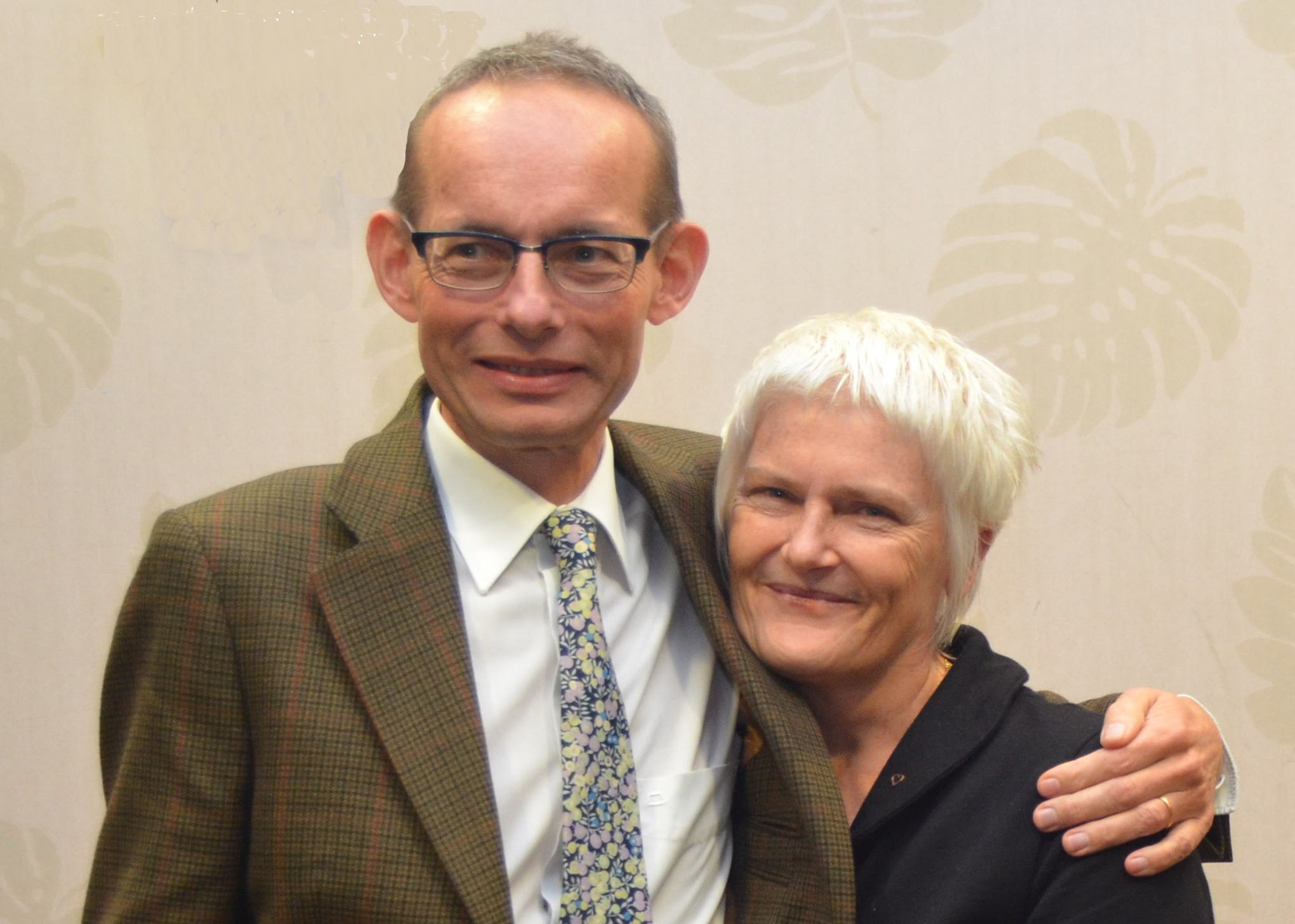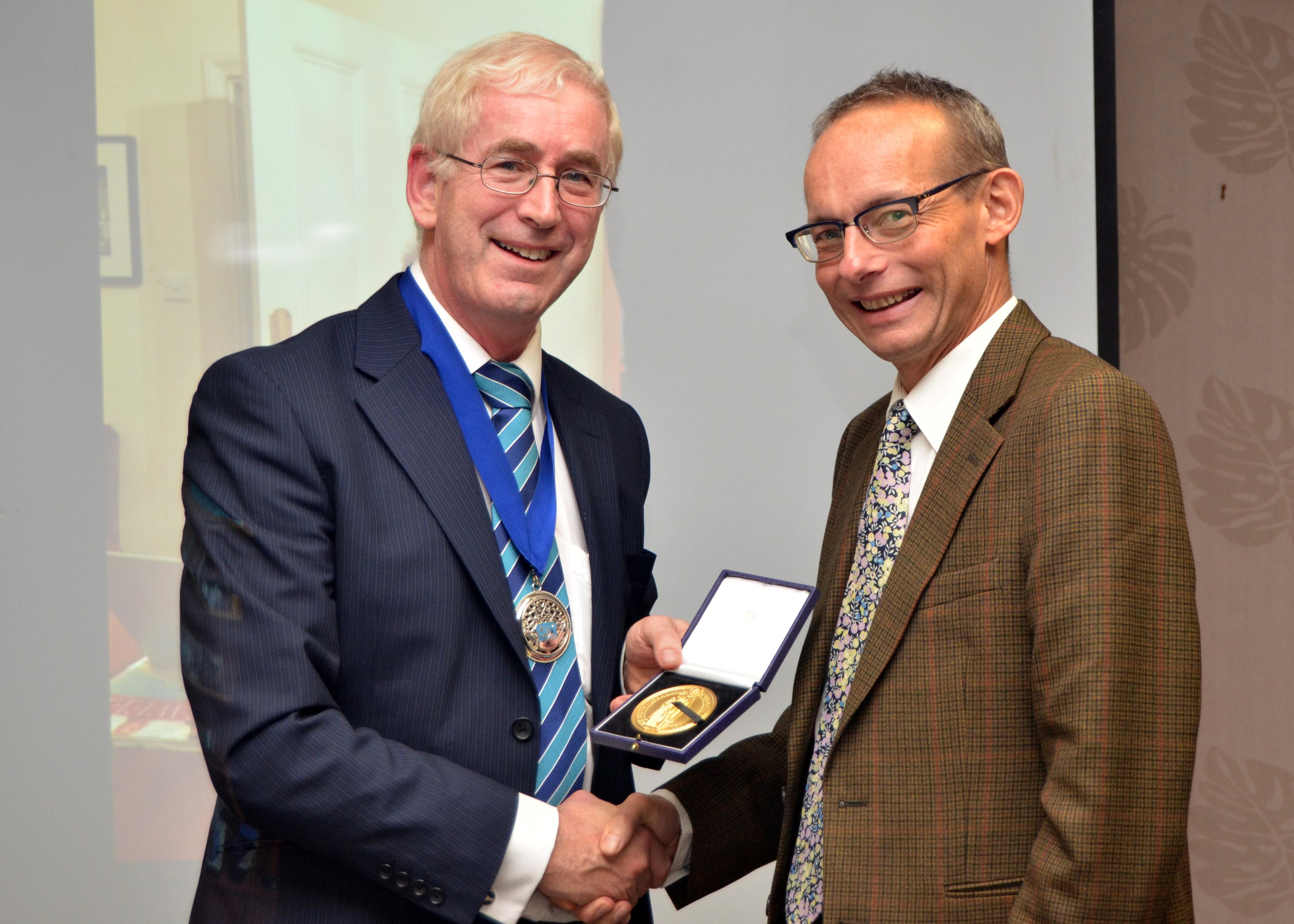1961 - 2018
Obituary by his colleagues at Freeman Hospital
Rob Pickard was, quite simply, a brilliant academic urological surgeon. At the time of his retirement in 2016, he was widely considered to be the UK’s leading clinical researcher in benign urology.
 Rob trained at the Royal London Hospital, where he met his wife Caroline (pictured right) and graduated in 1984. He completed a Postgraduate Doctorate at Newcastle University in 1994 and was appointed to Freeman Hospital as a Consultant Urological Surgeon in 1996, specialising in urinary tract reconstruction. He subsequently became Senior Lecturer, and then Professor of Urology at Newcastle University in 2009.
Rob trained at the Royal London Hospital, where he met his wife Caroline (pictured right) and graduated in 1984. He completed a Postgraduate Doctorate at Newcastle University in 1994 and was appointed to Freeman Hospital as a Consultant Urological Surgeon in 1996, specialising in urinary tract reconstruction. He subsequently became Senior Lecturer, and then Professor of Urology at Newcastle University in 2009.
Rob had a prolific academic record, amassing over 120 peer-reviewed publications, including prestigious high impact publications in the Lancet and the New England Journal of Medicine. He had a broad research interest spanning basic science through to clinical trials, systematic reviews, health service research and health economic evaluations. He developed an international profile as the chair of the EAU UTI guidelines group. Rob always had sight of the bigger picture, the end-game and the eventual outputs from his research, and this was perhaps his greatest strength as an academic. He knew the questions that he wanted to answer, and could identify how best to go about finding those answers in an efficient and conclusive way.
Where there was a lack of good evidence, he developed clinical trials such as OPEN, ANTIC, SUSPEND and CATHETER. He was also central to device development work in Newcastle, and led the innovation and implementation of non-invasive urodynamic and home uroflowmetry devices. He had a large national portfolio of high impact studies that will continue to change practice and improve patient outcomes in the years ahead. He developed a first-class research infrastructure in the North East and mentored many young academics in the process. However, when summarising Rob’s lifetime’s work, even more striking was the esteem in which he was held by his co-workers and most importantly by his patients. Although Rob was a leading light in academic urology he was primarily a clinician, and colleagues describe him as "excelling at every aspect of being a doctor", "passionate about bringing on young trainees" and "a technically excellent surgeon".
Rob was always committed to high-quality, evidence-based patient care. He provided a specialist supraregional service for urethroplasty, adolescent urology and urinary tract reconstruction to the north of England. He was widely admired for his sensitive and holistic approach to patient care, having developed a multidisciplinary clinic to cater for adolescents and patients living with urinary tract reconstruction.
 Rob was a key player in the inception of the BAUS Section of Academic Urology (now disbanded). Under his guidance the section’s national meeting became, a beacon of excellence in trial conduct and for showcasing British urological research.
Rob was a key player in the inception of the BAUS Section of Academic Urology (now disbanded). Under his guidance the section’s national meeting became, a beacon of excellence in trial conduct and for showcasing British urological research.
At the BAUS 2016 Annual Scientific Meeting, he was awarded the Silver Cystoscope for his outstanding contribution to training. Working with the BAUS Office of Education, he helped develop and update the FRCS Urol examination. He led on the MCQ and EMQ writing group for a number of years. His achievements were recognised in 2017 when BAUS awarded him the St Peter’s Medal for his exceptional contribution to urology and urological research.
St Peter's Medal presentation
Rob was a talented surgeon with a passion for patient care. Through his clinical and academic work he has driven forward our clinical knowledge and improved the lives of all those fortunate to have been under his care or tuition.
He died at home on 24 July 2018 after being diagnosed with glioblastoma multiforme in November 2015. He was supported throughout by his loving wife Caroline, daughter Rebecca and son Keir. He will be sorely missed by us all, not only in Newcastle but far beyond.
Read the original JCU obituary
← Back to Memorial Garden